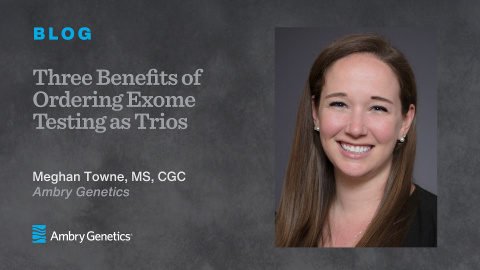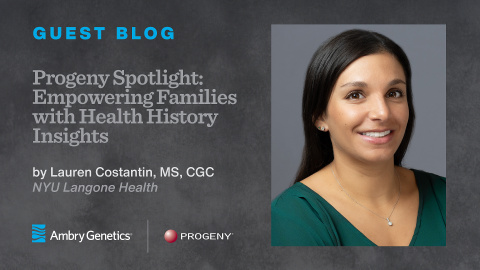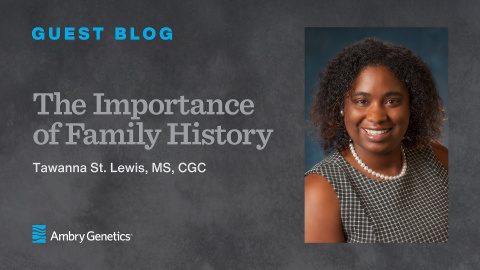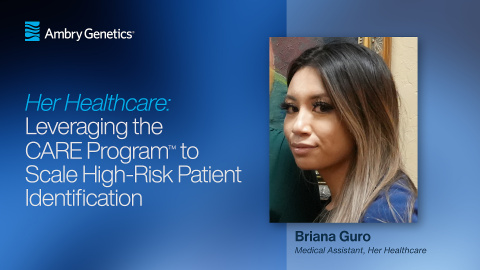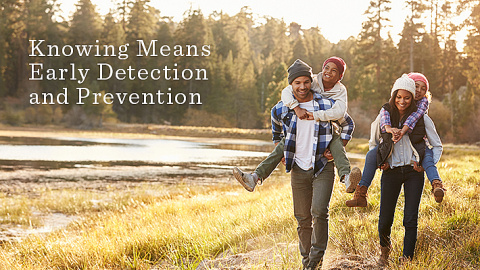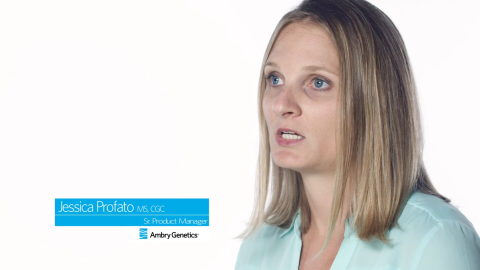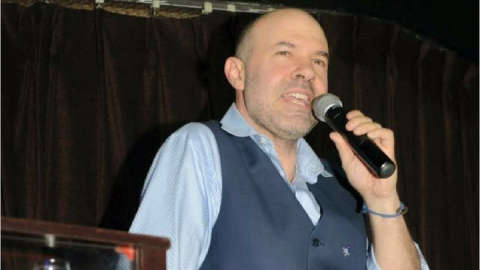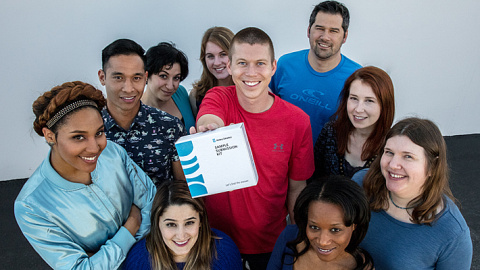- By Meghan Towne, MS, CGC, LCGC
- Posted February 19, 2025
Three Benefits of Ordering Exome Testing as Trios
Exome sequencing, which assesses the protein coding sections of all ~20,000 genes, is an effective genetic test for a variety of clinical indications, but especially for children with neurodevelopmental disorders. Because the testing range is so broad, it is important to have as much supportive evidence as possible to efficiently identify clinically…
- By Lauren Costantin, MS, CGC
- Posted November 21, 2024
Progeny Spotlight: Empowering Families with Health History Insights
Thanksgiving has always been my favorite holiday–it is a time to gather around the table with family from near and far, to eat a delicious meal, and catch up on everyone’s accomplishments over the past year. Thanksgiving is also National Family Health History Day, so as we are enjoying another helping of mashed potatoes this year, why not take…
- By Tawanna St. Lewis, MS, CGC
- Posted November 20, 2023
Guest Blog: The Importance of Family Health History
My name is Tawanna St. Lewis, and I have been a genetic counselor for going on seven years now. My love for the profession continues to grow. I remain passionate about my role because I enjoy speaking with and helping patients, and I genuinely appreciate it when patients feel comfortable enough to share their health history and family history.…
- By Meagan Farmer
- Posted August 9, 2023
Her Healthcare: Leveraging the CARE Program to Scale High-Risk Patient Identification
We recently met with Texas OB/GYN, Dr. Noel Boyd. We learned about her passion for caring for the whole patient and helping to identify those at increased risk for cancer so that they can make proactive choices to address their risk. Dr. Boyd’s practice implemented The CARE ProgramTM, which stands for “Comprehensive Assessment of Risk and…
- By Jessica Ordonez, MS, CGC
- Posted June 28, 2018
Benefits of Utilizing Family History & Clinical Data Management Tools to Maximize Efficiency and Productivity in Clinical Cancer Risk Assessment
As a genetic counselor, creating a family history is one of my greatest tools for clinical practice. It helps me assess an individual’s risk for a particular genetic condition, establish rapport with my patient, and educate on the features and variability of a genetic condition. For many years, family history was a manual process, where stencils…
- By Jessica Profato, MS, CGC
- Posted February 15, 2018
Using Family History to Guide Cancer Prevention
There are many factors that impact your patients’ risk to develop certain cancers, including whether or not they have a family history of the disease, which can significantly impact the likelihood they may develop cancers such as breast, colorectal, and prostate. Individuals with a strong family history of cancer may have a hereditary cancer…
- By Eve Mart
- Posted November 20, 2017
Genetic Testing May Have Changed Things for My Mom
*Editor's Note: In honor of Family History Day, which is on Thanksgiving, Eve Mart is sharing the story how hereditary cancer has shaped her relationship with her mother, and how genetic testing may have been able to help change the course of her mother's health. I often tell women “be your own best advocate”, and I truly mean it.…
- By Jessica Profato, MS, CGC
- Posted September 25, 2017
Knowledge is Power: Learn More About Lynch Syndrome
Over the past few years, hereditary breast and ovarian cancer, and the BRCA1 and BRCA2 genes, have received a lot of media attention. From the perspective of a Genetic Counselor, I can say that these stories have helped raise awareness about hereditary cancer and the importance of understanding your family history. I hope that…
- By David Dubin
- Posted March 30, 2017
Since You Asked, Here's My Advice to Cancer Patients
In my role as co-founder of AliveAndKickn, people ask me for my opinion all the time. Topics range from how to manage pain, how to navigate post-cancer survivorship, to whether or not the U.S. will ever become a world soccer powerhouse. (No, I’m not kidding.) I’m not big on giving advice, but I try to answer as honestly as I can. First,…
- By Jackie Connor
- Posted March 14, 2017
Four Reasons Why Genetic Testing Matters to the Individual with Colorectal Cancer
Colon cancer is the third most common cancer diagnosed in both men and women in the United States, and more than 95,000 new cases of colon cancer and 39,000 new cases of rectal cancer are estimated for 2017, according to the American Cancer Society. Up to 10% of colorectal cancer is hereditary, or caused by inherited gene mutations. Hereditary…
